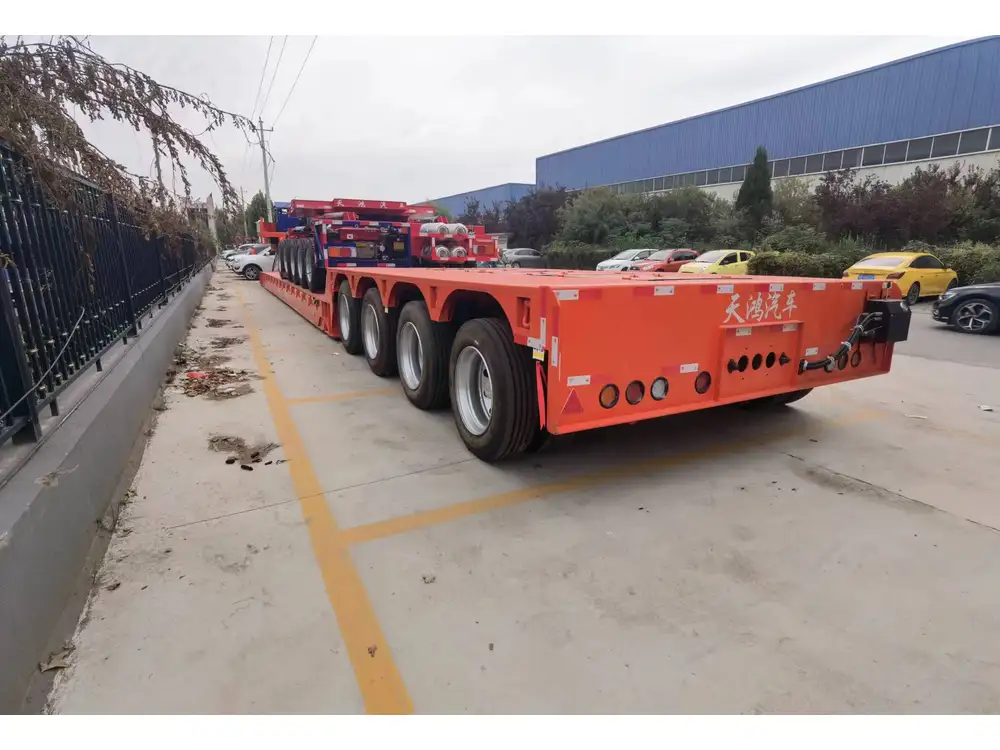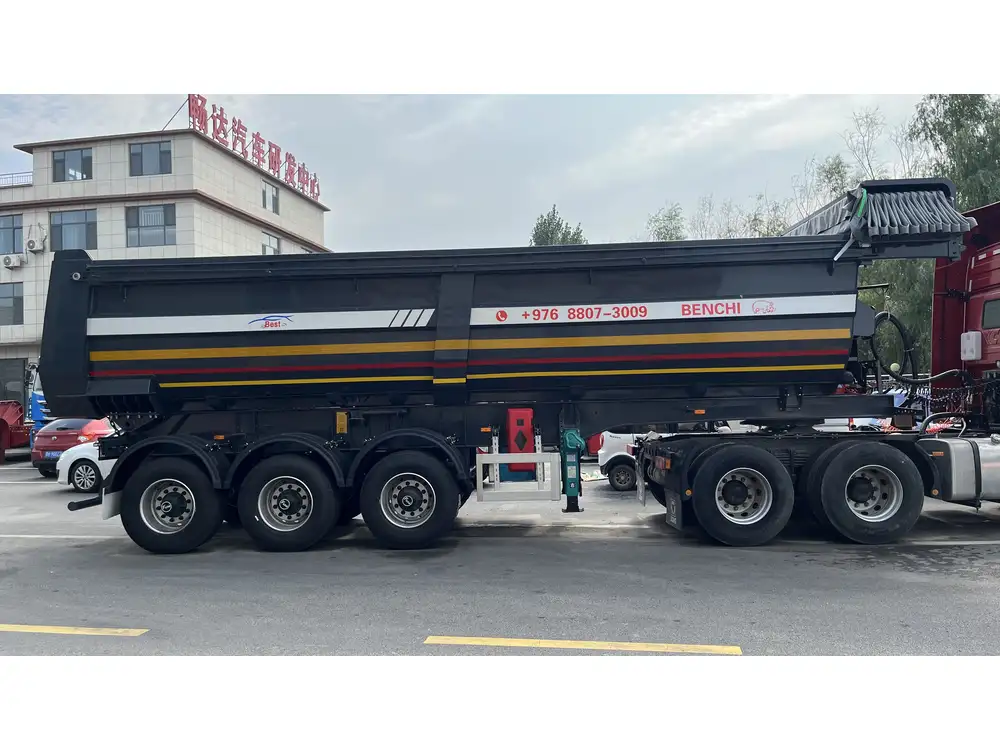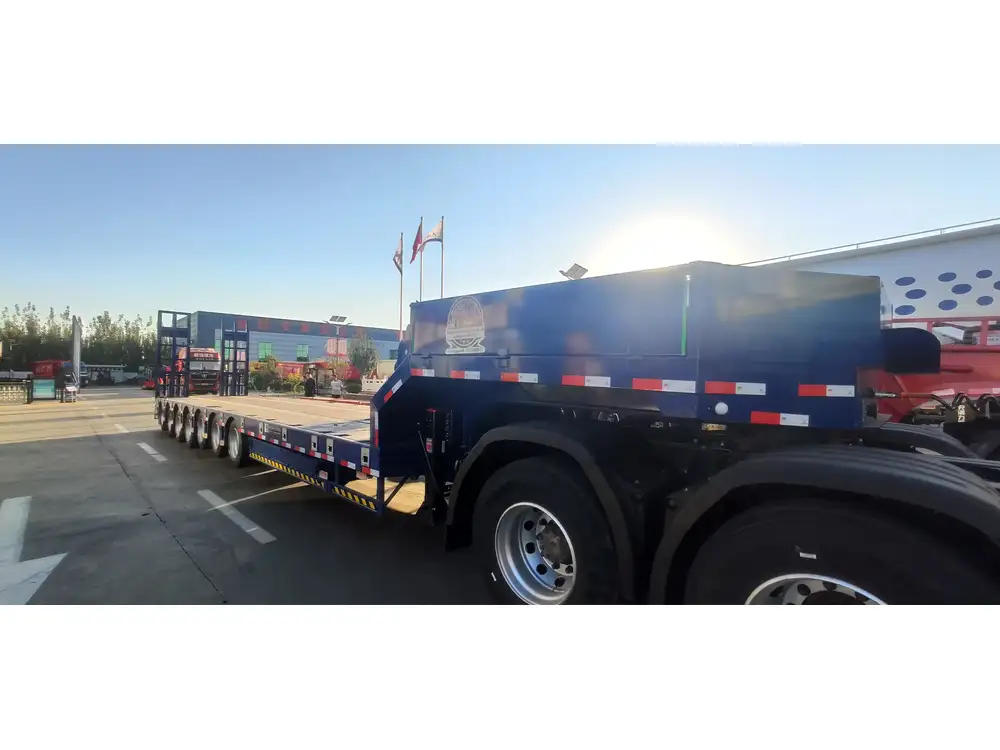When it comes to ensuring the smooth operation of dump trailers, understanding the charging mechanism of their batteries is crucial. A frequently posed question among users and manufacturers alike is: “Do dump trailer batteries charge when hooked to the truck?” In this detailed exploration, we will clarify this question, delve into the intricacies of dump trailer battery systems, and address common issues faced in their use.
Understanding Dump Trailer Battery Systems
A dump trailer is typically equipped with a hydraulic system, powered by an electric motor that relies on batteries. These batteries are essential for the operation of hydraulic lifts, lights, and any other electrical systems in the trailer. The setup generally includes:
Battery Type: Most dump trailers utilize deep cycle batteries designed for prolonged usage. Unlike car batteries, they can be deeply discharged and recharged without significant damage.
Wiring Configuration: The wiring plays a pivotal role in determining how effectively the trailer’s battery can be charged while connected to a vehicle.
Charging Source: Primarily, dump trailer batteries can be charged through the following means:
- Standard AC charger
- Truck’s auxiliary power supply
- Solar chargers (for off-grid setups)
Do Dump Trailer Batteries Charge When Hooked to Truck?
The concise answer: Yes, most dump trailer batteries do charge when hooked to a truck, but several factors influence this charging process.

Primary Factors Affecting Charging
Truck’s Electrical System: Not all trucks are equipped to provide auxiliary power. Many modern vehicles feature a 12V outlet specifically designed for this purpose.
Wiring and Connections: Proper connections are vital. Poorly wired connections can prevent effective charging, leading to underperformance. Conduct a thorough inspection of:
- Connector integrity
- Electrical gauges and wiring for any signs of wear
Battery Condition: An old or damaged battery may not readily accept a charge, even if connected to a power source. Regular maintenance and checks are essential to ensure efficient performance.
Load on the Truck’s Battery: If the truck is performing multiple energy-demanding functions while simultaneously attempting to charge the trailer’s battery, charging efficiency diminishes.
Types of Batteries Used in Dump Trailers
1. Lead-Acid Batteries
- Advantages: Economical and widely available; suitable for many applications.
- Disadvantages: Heavier, prone to sulfation, limited cycle life.

2. Absorbent Glass Mat (AGM) Batteries
- Advantages: Sealed design, resistant to vibration; longer service life.
- Disadvantages: More costly than standard lead-acid batteries.
3. Lithium-Ion Batteries
- Advantages: Lightweight, excellent energy density, and longer lifespan.
- Disadvantages: Higher initial cost; requires compatible charging systems.
How to Optimize Charging While Hooked Up
To maximize the efficiency of the charging process, consider these recommendations:
Check Compatibility: Ensure that your truck’s electrical system is compatible with the dump trailer battery specifications.
Use Quality Cables: Heavy-duty cables decrease resistance and ensure better power transmission.
Regular Maintenance: Regularly cleaning connections and ensuring tight fittings can significantly enhance the performance of both the truck and trailer.
Monitor Voltage Levels: Incorporate a voltmeter to check charging voltage—ideally, it should be between 13.5V and 14.5V when charging effectively.
Invest in a Smart Charger: If constant power supply is a challenge, a smart charger installed in the dump trailer might be the best investment for maintaining battery health.

Common User Concerns and Troubleshooting
1. Battery Not Charging?
If facing issues where the battery does not appear to be charging, consider the following troubleshooting steps:
Inspect Fuses: A blown fuse in either the truck or trailer can interrupt the charging current.
Connection Check: Confirm that all connections are clean, tight, and free of corroded terminals.
2. Slow Discharge Rate
A quick discharge can often be attributed to a failing battery. Ensure regular testing and, if necessary, replace with a high-quality alternative.

3. Unexpected Voltage Drop
A drop in voltage can suggest a couple of potential problems:
Battery Age: Batteries have a lifespan, usually around 4-6 years for lead-acid. Regularly scheduled checks can help determine if replacement is necessary.
Wiring Issues: Damaged, frayed, or improperly insulated wiring can cause significant voltage loss.
Calculating Energy Needs
Knowing your energy needs is fundamental for optimizing both performance and battery life. Use the following method to estimate requirements:
Step 1: Assess Load Requirements
- Identify all electrical devices used in conjunction with the trailer. Common devices include:
- Hydraulic pump
- Interior/exterior lighting
- Electrical winches

Step 2: Calculate Amperage
- Use the formula: Amperage = Wattage / Voltage
- An example might be a hydraulic pump that operates at 500W:
- Amperage = 500W / 12V = approximately 41.67A
Step 3: Estimate Run Time
- Determine how long devices will typically run. If the hydraulic system uses 41.67A for 30 minutes, it will draw:
- Total Ah = Amperage × Run Time (in hours)
- Total Ah = 41.67A × 0.5h = approximately 20.83Ah
Step 4: Size Your Battery Bank Appropriately
Having an accurate assessment of your energy requirements can help you determine the optimal battery configuration, leading to better performance.

Best Practices for Battery Maintenance
Regularly Check Water Levels: For lead-acid batteries, maintain appropriate fluid levels—distilled water is preferable.
Avoid Deep Discharges: Keeping the discharge above 50% is ideal; this practice extends battery life significantly.
Seasonal Checks: Particularly before harsh weather, a full check of battery health can prevent unexpected failures during crucial operations.
Utilize a Battery Management System (BMS): For trailers using lithium-ion, integrating a BMS will help manage battery charging effectively, preventing overcharging and deep discharge.
Conclusion: Making Informed Choices for Dump Trailer Operations
Navigating the world of dump trailer batteries does not have to be cumbersome. By understanding the mechanics of how batteries charge while connected to trucks, the importance of quality maintenance, and the necessity of proper battery selection, operators can greatly enhance their efficiency and extend the lifespan of their equipment.
Not only does ensuring efficient battery function propel productivity, but it also minimizes downtime—keeping work projects on schedule. For manufacturers and users alike, investing in high-quality batteries, maintaining proper truck-trailer connections, and continuous monitoring of battery health are essential steps toward operational excellence.
By addressing the fundamental aspects of charging dump trailer batteries and providing insightful maintenance tips, we empower operators with the knowledge necessary to harness the full potential of their dump trailers, ensuring durability and reliability for years to come.



